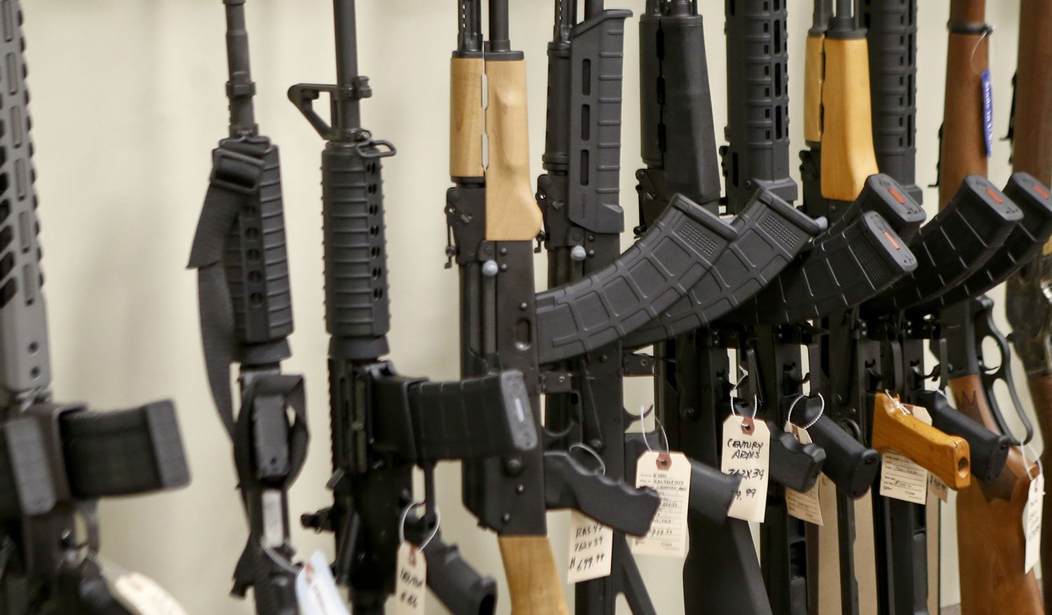California has tougher state-level gun control laws than anywhere in the nation. The only place where they’re tougher is inside New York City, but even the state of New York lags a bit behind the Golden State.
It’s a shame, too, because California really does have a lot going for it. From mountains and beaches to deserts and forests, they’ve got a lot of beautiful terrain. But, they also have a butt-ton of gun control.
For a while now, there have been those in the state that seem to think California would be better off alone. In an op-ed lays out a scenario for Calexit, much of that is motivated by gun control.
It was gun violence that finally drove California to secede from the United States.
A series of mass shootings culminated in a savage attack on a Sacramento-area school that killed 35 kids and two cops. The shooters used rifles, pistols, and large-capacity magazines — weaponry that had been illegal in California until the U.S. Supreme Court threw out the state’s gun control laws. Californians raged that the conservative justices had effectively murdered their children.
That anger spiraled into a cold civil war, with California’s elected leaders openly defying federal officials and laws by outlawing most guns. An authoritarian Republican president retaliated with an economic blockade of the state. After right-wing militias invaded the state and massacred California Highway Patrol officers, the governor declared her intention to depart the Union, subject to the result of a referendum by voters.
This path to California nationhood is fiction, at least for now. But this account — invented by the writer David French in his 2020 book “Divided We Fall: America’s Secession Threat and How to Restore Our Nation” — might be the most realistic scenario for a Calexit that I’ve encountered.
The scenario packs a special power because French is a careful, rigorous thinker who desperately wants the United States to remain united. A lawyer, military veteran, and champion of socially conservative causes, he is also loyal to the American tradition of pluralism: he broke early and decisively from allies to oppose President Trump and harsh partisanship. His book is a fair-minded examination of how Americans, across not just the political spectrum but also the nation’s geography, have started to loathe those with whom they disagree.
Which, of course, is why French lays out the worst-case scenario gun control advocates tend to use to justify their draconian infringements on our basic civil liberties.
There’s no mention of a possible scenario where someone attempts a mass shooting and is shot and killed by an armed citizen who only has his permit because of a Supreme Court ruling. There’s no hint of thousands of lives being saved because law-abiding Californians opted to have guns on hand and could use them to defend themselves from harm.
It’s easy to look at something like this as a realistic scenario if you take gun control as an unmitigated good. It’s not. Far from it, actually.
The truth of the matter is, though, that nightmare situation simply isn’t going to happen in the first place. After all, take a look at the rest of the country, the rest that lacks California’s draconian anti-gun measures. None of that is happening anywhere else. We’re not awash in a sea of blood, even if violent crime has temporarily spiked. It’s spiked everywhere, including heavily gun-controlled places like California and New York.
Now, in fairness, the op-ed really does try to talk about how we, as a nation, need to stop loathing our opposition. However, that’s not easy when you watch the other side so blatantly misrepresent the potential outcome of various policies. It’s hard to take people seriously who spend so much of their lives that terrified of our civil liberties being fully exercised.
But hey, if California does want to leave, let them. The parts of the state that would like to remain should be free to, of course, thus making California much smaller and leaving almost all those good people who actually respect our Second Amendment rights.
Of course, as a Southerner, I can tell California that leaving the union tends to not work out so well.








